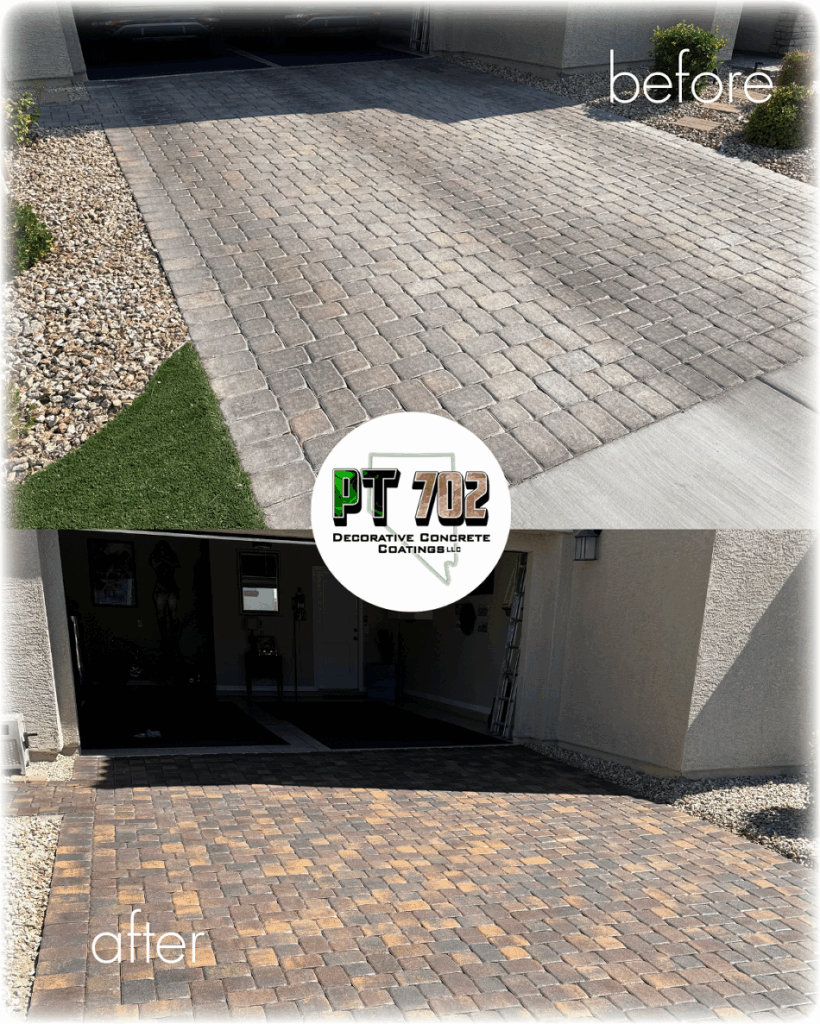Benefits of Paver Sealing with Solvent Sealer
Using a solvent-based sealer for pavers provides a more durable and long-lasting finish with excellent color enhancement, making it ideal for high-traffic and exterior areas. Compared to water-based alternatives, solvent-based sealers generally offer better resistance against harsh weather, chemicals, and abrasion.

Appearance And Color Enhancement
"Wet look" finish: Solvent-based acrylic sealers are known for their ability to provide a glossy, "wet look" finish that enhances and darkens the color of pavers. This can dramatically improve the curb appeal of faded or dull surfaces.
Color-reviving technology: Some pigmented solvent-based sealers can even restore rich color to old and tired-looking pavers, making them appear new again.
Durability And Protection Superior Resistance
Superior Resistance: The durable film created by a solvent-based sealer provides excellent resistance to UV rays, weathering, rain, stains, and spills from oil and grease.
Stronger Bond: Solvent-based sealers penetrate deeper into the surface, which strengthens the bond between the pavers and the joint sand, preventing the sand from washing out.
Reduces Erosion: The protective barrier helps to repel water, preventing it from seeping into the cracks and causing erosion over time. This also provides protection against freeze-thaw cycles that can cause cracking.
Prevents Weed and Moss Growth: By sealing the joints, solvent-based sealers create a barrier that inhibits the growth of weeds and moss, especially in damp areas.
Maintenance
Stabilizes Joint Sand: It locks the sand between the pavers in place, which further prevents sand loss and helps deter ants and other insects.
Easier Cleaning: A sealed paver surface is much easier to clean, as stains from dirt and spills remain on the sealant rather than penetrating the porous paver.
Application
Better Penetration: The chemicals in solvent-based sealers allow for deeper penetration into the paver's surface, offering robust, long-term protection.
Can Be Applied Over Previous Solvent Sealers: For maintenance coats, you can often apply a new layer of solvent-based acrylic sealer over a surface that was previously sealed with a similar product.
Important Considerations
Requires a Dry Surface: Unlike some water-based products, solvent-based sealers must be applied to perfectly dry pavers and joint sand for proper penetration.
Higher VOCs: Solvent-based sealers typically have higher volatile organic compound (VOC) content and a strong odor, so proper ventilation and safety precautions (such as wearing a respirator) are required.
Slippery When Wet: The glossy finish can sometimes create a slippery surface when wet. Anti-slip additives can be mixed in to increase traction.
Can Trap Moisture: If applied too soon after installation, it can trap moisture and cause efflorescence (a white, chalky haze).
